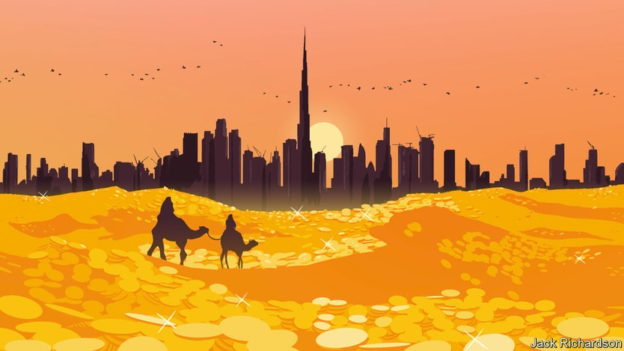An energy crisis and fresh alliances are making the Gulf more powerful, more volatile—and impossible for the world to ignore
In eight weeks roughly 1m football fans will descend on Qatar for the World Cup, many of them travelling via neighbouring cities such as Dubai and Abu Dhabi. They will find a Gulf in the midst of a $3.5trn energy bonanza, courtesy of Vladimir Putin’s war in Ukraine. Western politicians facing a cost-of-living crisis are once again paying homage to the royalty of the fossil-fuel economy. Olaf Scholz, Germany’s chancellor, is due to visit this week; in July President Joe Biden fist-bumped Muhammad bin Salman (mbs), the de facto ruler of Saudi Arabia, a country he had branded a pariah for its human-rights abuses.
As we explain this week, the latest oil and gas boom is taking place alongside deeper trends: a re-engineering of global energy flows in response to Western sanctions and climate change, and the remaking of geopolitical alliances in the Middle East as it adapts to a multipolar world in which America is no longer a reliable guarantor of security.
It will be richer, more powerful—and more volatile
roughly 1m football fans will descend on Qatar for the World Cup, many of them travelling via neighbouring cities such as Dubai and Abu Dhabi. They will find a Gulf in the midst of a $3.5trn energy bonanza, courtesy of), the de facto ruler of Saudi Arabia, a country he had branded a pariah for its human-rights abuses.
gdp) are autocracies facing a long-run decline in world demand for fossil fuels, even as they suffer from lower rainfall and higher temperatures because of climate change.In response to tight energy markets, Saudi Arabia and thelngtraded worldwide in 2021. From its point of view, the timing, amid a global gas squeeze, could not be better.
https://www.economist.com/leaders/2022/09/22/an-energy-crisis-and-geopolitics-are-creating-a-new-look-gulf





